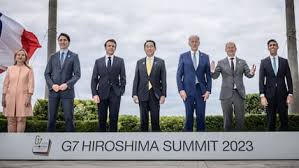Understanding Jeffrey Sachs and His Contributions to Global Issues

Introduction
Jeffrey Sachs, a prominent American economist and public policy analyst, is recognized worldwide for his significant contributions to sustainable development, economic policy, and international health. As the director of the Center for Sustainable Development at Columbia University, Sachs’ work is crucial in addressing pressing global challenges such as poverty, climate change, and public health crises. His advocacy for efficient economic reforms and sustainable policies resonates especially today as the world grapples with the impacts of the COVID-19 pandemic and climate change.
Main Contributions
Sachs’ career is distinguished by his dedication to eradicating poverty and promoting equitable growth. He played a key role in formulating the Millennium Development Goals (MDGs) established by the United Nations, which aimed to address critical issues of global development by 2015. Following the MDGs, he has been instrumental in developing the Sustainable Development Goals (SDGs) outlined for 2030, which call for a more inclusive approach to development.
In recent years, particularly during and after the pandemic, Sachs has emphasized the importance of equitable access to vaccines and medical resources. He warned that failure to vaccinate populations in low-income countries could hinder global recovery and potentially lead to the emergence of new variants, prolonged economic disruption, and health crises.
Furthermore, Sachs’ work often addresses the intersection of climate change and sustainable economic practices. He advocates for policies that simultaneously promote economic growth while mitigating environmental damage, focusing on renewable energy and sustainable agricultural practices. As the world continues to experience severe climate-related disasters, his insights remain more relevant than ever, fostering discussions about urgent reforms.
Recent Developments
In 2023, Sachs has continued to engage with global leaders and organizations, pushing for immediate action against climate change and advocating for debt relief for developing nations suffering from economic fallout caused by the pandemic. His initiatives seek to mobilize resources to facilitate development projects that align with sustainability.
Conclusion
Jeffrey Sachs’ influential work in economics and sustainable development underscores the importance of informed and equitable policy-making. As the world confronts intertwined challenges of poverty, health, and environmental degradation, Sachs’ perspectives offer a roadmap for solutions that are not only effective but also just. Readers should pay close attention to his ongoing work and insights, which continue to shape discussions on global sustainability and development strategies.









